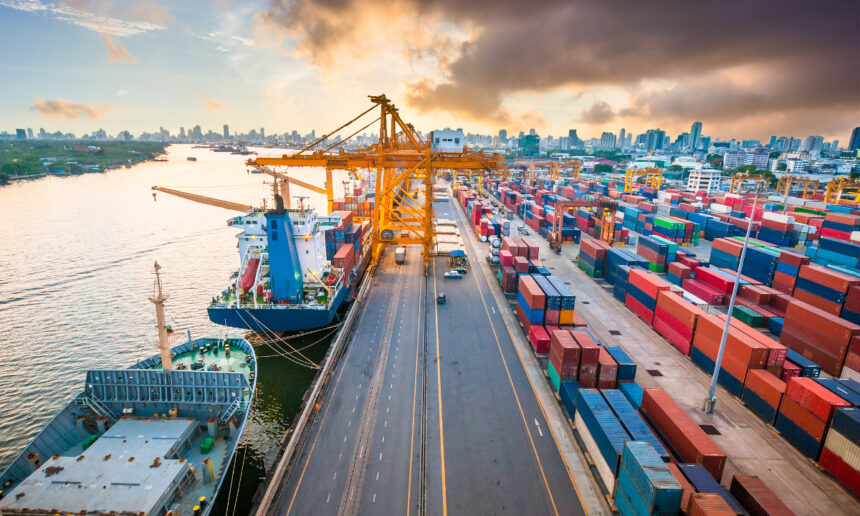By Yin Yeping and Tao Mingyang
Major world economies have stepped up measures to prepare to counter tariffs that US President Donald Trump is threatening to impose in the coming days, a move that a Chinese expert warned could escalate world trade tensions.
European companies are bracing for a financial hit from a potential trade war with the US, with some top executives warning that uncertainty over Donald Trump’s trade policy is already affecting investment plans, the Financial Times reported on Sunday.
The US president delayed steep tariffs against Canada and Mexico earlier last week but still has the EU in his crosshairs, leaving executives guessing the scale and impact of any new levies, the report said.
Trump said on Friday he plans to announce reciprocal tariffs on many countries by Monday or Tuesday of next week, a move that Reuters described as “a major escalation of his offensive to tear up and reshape global trade relationships in the US’ favor.”
Trump did not identify which countries would be hit but suggested it would be a broad effort that could also help solve US budget problems, Reuters reported.
Li Yong, a senior research fellow at the China Association of International Trade, told the Global Times on Sunday that “Trump’s approach claims to be based on the so-called “America First” ideology. In practice, it essentially isolates the US economy from the rest of the world.”
Worldwide concern
Trump’s tariff announcement has already sparked global concern, especially among major US trading partners, with some considering possible measures if the tariffs are implemented.
Canada wants to deepen economic ties with the EU and uphold global trading rules in the face of threatened US tariffs, its trade minister Mary Ng told Reuters on Saturday.
Trump paused the imposition of tariffs for 30 days. Ng said that “Canada could challenge Washington at the WTO if tariffs were imposed,” per the Reuters report.
“We would consider all of the options are available to Canada because Canada is a country that believes in a rules-based trading system,” Ng said.
Vietnamese Prime Minister Pham Minh Chinh stressed the need to prepare for a possible global trade war while presiding over a Cabinet meeting. Pham said that “A trade war, if any, would disrupt supply chains and hinder exports, thus it is necessary to put forward measures to swiftly deal with such a war in order to sustain the country’s growth momentum in 2025,” according to the Vietnamese government website on Wednesday.
Australia, as a trade-reliant nation, is susceptible to the US’s new tariff regime, despite not being a direct target of Donald Trump’s import taxes yet, the Guardian reported Thursday. “Overall, an international trade war is not going to be good for a trading nation,” the chief executive of the Perth-based Association of Mining and Exploration Companies, Warren Pearce, said, noting that “We probably have more to lose from a trade war than we have to gain.”
In response to the US government’s announced 10 percent additional tariffs on all Chinese goods to the US, China announced on February 4 additional tariffs on certain imported goods originating from the US, including a 15 percent tariff on coal and liquefied natural gas and 10 percent tariff on crude oil, agricultural machinery, large-displacement cars and pickup trucks, per the Customs Tariff Commission of the State Council.
Trump’s plan to impose reciprocal tariffs could involve a wide range of countries, and this strategy is altering the way the US sets tariffs in international trade. Instead of setting tariffs under a platform like the WTO, the US now determines tariffs one-on-one with each country, undermining the global commitments and practices of the multilateral framework, Zhou Mi, a senior research fellow at the Chinese Academy of International Trade and Economic Cooperation, told the Global Times on Sunday.
In a further note, Zhou said that many countries are concerned about Trump’s tariff plan because it is likely to result in much higher rates than current levels, which could have a significant impact on the countries involved, including increased trade costs.
If Trump imposes reciprocal tariffs, it could create significant challenges for global trade and economic governance, and Zhou warned that “the move could escalate world trade tensions.”
Foreseeable impacts
Trump’s tariff approach has already produced negative side effects on the US’ own economy.
US consumer sentiment slumped in early February to a seven-month low on a spike in short-term inflation expectations related to concerns about tariffs, Bloomberg reported.
The preliminary February sentiment index slid 3.3 points to 67.8, according to the University of Michigan, the report said, noting that the latest reading trailed all forecasts of economists surveyed by Bloomberg.
Li Yong told the Global Times there is clear evidence that tariffs are a double-edged sword and that it does not need a genius to predict the ramifications for the US economy. “Imposing tariffs as a bargaining chip in the US’s deal-making with the rest of the world will only be deal breakers. It lacks practical feasibility and goes against economic principles, and eventually it will harm America’s economic interests,” Li said.
For the US, which relies on imports of not only consumer goods, but also intermediate products that go into US finished products, tariffs will raise domestic production costs, harming both industries and consumers, Li said.
Imposing tariffs will not solve the US’ economic problems, or increase “Made-in-the-USA,” but it will worsen the economic conditions and the ecosystem of US competitiveness. It is not hard to imagine countries targeted by US tariffs will respond with retaliatory measures, which will not just result in higher costs of living and production, but also loss of trade-related jobs, pushing the US further away from the already-optimized and efficient global economy, Li noted. “Tariffs are taxes on efficiency.”
For other countries, it is important to uphold multilateral frameworks that encourage negotiation and cooperation, while taking concrete steps to enhance regional cooperation, which will help stabilize global trade and support economic growth, Cui Hongjian, a professor of the Academy of Regional and Global Governance at Beijing Foreign Studies University, told the Global Times on Saturday.
In response to Trump’s tariffs, He Yongqian, a spokesperson for China’s Ministry of Commerce, said at a press briefing on Thursday that it is a typical practice of unilateralism and trade protectionism, which seriously undermines the rules-based multilateral trading system, disrupts the stability of the global industrial chain and supply chain, and exacerbates global trade tensions.
“China is willing to work with relevant countries to clearly advocate free trade and multilateralism, jointly respond to the challenges of unilateralism and trade protectionism, and maintain the orderly and stable development of international trade,” the spokesperson said.











